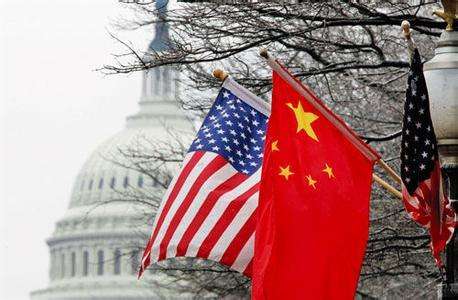


Earlier this month, America’s top intelligence officials were on Capitol Hill for the annual hearing on “worldwide threats.” The rise of China and the so-called “China threat,” as if on cue, became a major discussion point, revealing what the Chinese Foreign Ministry later described as America’s “strong sense of insecurity,” as the world’s most powerful nation seems to be afraid of its own shadow. But it was perhaps the exchange between U.S. Senator Marco Rubio and FBI Director Christopher Wray that has caught the most attention.
In response to a question from Rubio about the counterintelligence risk posed to U.S. national security from Chinese academics, Wray sounded the alarm on China. “The use of non-traditional collectors, especially in the academic setting – whether it’s professors, scientists, students – we see in almost every field office that the FBI has around the country. It’s not just in major cities. It’s in small ones as well, it’s across basically every discipline,” Wray warned, who then proceeded to define the “China threat” as a “whole-of-society threat.”
What is more, Wray argued that Confucius Institutes, which are used to teach Chinese language and culture and help build bridges between the peoples of China and other nations, are sinister tools that “they” use to shape public opinion in other countries. This dangerous assumption, that basically anyone or anything from China is a threat to U.S. national security and therefore deserving of extra suspicion, was quickly condemned as alarming and racist.
U.S. Congresswoman Judy Chu, chair of the Congressional Asian Pacific American Caucus, said in a statement that Rubio’s leading question and Wray’s sweepingly broad response were “completely irresponsible generalizations” that attempt to paint all Chinese academics as spies for China. “Unfortunately, the growing perception that simply being of Asian ancestry or having ties to China makes you prone to espionage has created a culture of fear that has negatively impacted the Asian American community,” Chu said.
The non-partisan organization Committee of 100, a membership organization committed to promoting dialogue and relationships between Chinese and Americans, called Wray’s comments “disturbing and prejudicial.” “To target a whole group of people as being subject to greater suspicion, based purely on race and national origin, and in advance of any facts or evidence, goes against the fundamental American ideals of the presumption of innocence, due process and equal protection for all,” the statement said. “It also fans the flames of hysteria.”
Such outdated Cold War-thinking should come as no surprise. After all, many in the U.S. government share the view that China is a hostile power locked in a geopolitical competition with the United States for world domination. Earlier this month, for example, Rubio penned a letter to multiple universities to play up the “China threat” as a way to demonize China and encourage a more hostile approach to China, warning them of China's "infiltration" in U.S. academia.
A certain level of hysteria is to be expected in Washington, especially in the face of waning U.S. influence on the world stage. But it seems that some in Washington are suffering from a severe case of anti-Chinese hysteria. The recent exchange between Rubio and Wray took the “China threat” theory to a whole new level: In their words, simply being Chinese makes one a potential threat to U.S. national security.
Of course, the U.S. government should take threats from foreign countries seriously, and the U.S. intelligence community has an important role to play in informing policy makers. But irrational fears over China’s rise and lazy analysis that is not only racist in nature but dripping with anti-Chinese hysteria are making a mountain out of a molehill.
 Fire brigade in Shanghai holds group wedding
Fire brigade in Shanghai holds group wedding Tourists enjoy ice sculptures in Datan Town, north China
Tourists enjoy ice sculptures in Datan Town, north China Sunset scenery of Dayan Pagoda in Xi'an
Sunset scenery of Dayan Pagoda in Xi'an Tourists have fun at scenic spot in Nanlong Town, NW China
Tourists have fun at scenic spot in Nanlong Town, NW China Harbin attracts tourists by making best use of ice in winter
Harbin attracts tourists by making best use of ice in winter In pics: FIS Alpine Ski Women's World Cup Slalom
In pics: FIS Alpine Ski Women's World Cup Slalom Black-necked cranes rest at reservoir in Lhunzhub County, Lhasa
Black-necked cranes rest at reservoir in Lhunzhub County, Lhasa China's FAST telescope will be available to foreign scientists in April
China's FAST telescope will be available to foreign scientists in April "She power" plays indispensable role in poverty alleviation
"She power" plays indispensable role in poverty alleviation Top 10 world news events of People's Daily in 2020
Top 10 world news events of People's Daily in 2020 Top 10 China news events of People's Daily in 2020
Top 10 China news events of People's Daily in 2020 Top 10 media buzzwords of 2020
Top 10 media buzzwords of 2020 Year-ender:10 major tourism stories of 2020
Year-ender:10 major tourism stories of 2020 No interference in Venezuelan issues
No interference in Venezuelan issues
 Biz prepares for trade spat
Biz prepares for trade spat
 Broadcasting Continent
Broadcasting Continent Australia wins Chinese CEOs as US loses
Australia wins Chinese CEOs as US loses